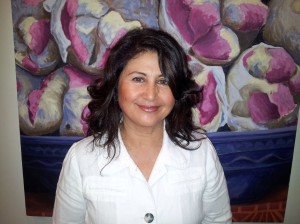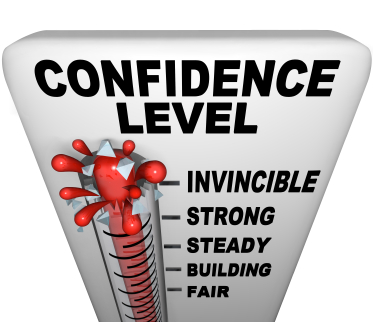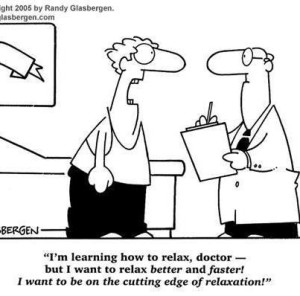Anxiety
Healing anxiety?
Healing and lessening anxiety takes time and practise, and caring for yourself in a different way to get right. We all experience anxiety from time to time as a normal human experience. But when it is a constant companion and an over-reaching shadow that impacts on life in various ways, it’s important to seek the right help to overcome it.
Formerly referred to as a ‘nervous disorder’ or a condition affecting a person thought to be ‘highly strung!’ Ongoing anxiety, where a person doesn’t know how to change their thinking style can lead to depression. What used to be called ‘nervous exhaustion, because the end result of ongoing overwhelm and emotional hyperarousal is exhausting. This easily becomes being anxious about being anxious!
Anxiety and depression have now become an epidemic of unwellness in the modern world; disease brought on by overly stressful lives that most of us live to some degree in modern-day societies. Less common in more rural and ‘third world’ societies. These depleted emotional states of anxiety and depression are considered a type of mental disorder. However, that can stigmatise people from seeking accessible help and support.
Healing or lessening anxiety can take time to get right and treatment may include both counselling and medication or just the one or other. Medication does not stop the symptoms of anxiety from actually occurring. It does help to dampen down the heightened response of the symptoms, but not actually work at the cause of what is causing the anxiety, hence counselling is more likely to assist at the root and recovery level. It helps to choose a counsellor where you experience a connection, as a good recovery is predicated more on a caring relationship between counsellor and patient than the particular type of counselling.
Signs and Symptoms of Anxiety
The symptoms of anxiety are sometimes not all that obvious as they often develop gradually and, given that we all experience some anxiety at some points in time, it can be hard to know how much is too much. Symptoms will also vary from person to person.
Some common symptoms include:
- confusion
- sweating
- hot and cold flushes
- racing heart
- tightening of the chest
- faintness / dizziness
- difficulty breathing
- upset stomach or nausea
- restlessness
- avoidance behaviour
- irritability
- snowballing worries
- obsessive thinking and compulsive behaviour.
These are just some of a number of symptoms that may be experienced. They are not designed to provide a diagnosis – for that you need to see a doctor – but they can be used as a guide. Sometimes, we overthink things.
Types of Anxiety
Anxiety disorders can range from Generalised Anxiety to panic attacks, phobias and post-traumatic stress disorder. Symptoms include stress that is out of proportion to the impact of the actual event, and an inability to set aside worrying about and a restlessness in both body and mind.
Generalised anxiety disorder. This is excessive, unrealistic worry and tension, even if there’s little or nothing to provoke the anxiety.
Panic disorder / attacks. These are sudden “out of the blue” attacks that cause terror with symptoms of rapid heart rate (palpitations), choking sensation, sweating, chest pain, and feelings of “going crazy”.
Social anxiety disorder. Also called social phobia and heightened re prevalence of social media platforms. This involves overwhelming worry and self-consciousness about everyday social situations. Worry often centres on a fear of being judged by others, or deeply troubled by criticism, or worry about behaving in a way that might cause embarrassment or lead to ridicule.
Phobias. This is an irrational and overwhelming fear of something that causes the person to hold an exaggerated aversion towards it. The person maybe terrified and paralysed with fear when the phobia is triggered, such as fear of spiders or of heights. Considered a learned behaviour with therapy aiming to provide new learning to overcome the phobia.
Post-traumatic Stress Disorder. This condition develops after a person has been exposed to a serious traumatic or terrifying event in which serious physical harm occurred or was threatened. PTSD is a lasting consequence of a single traumatic event or a series of them, that cause intense fear, helplessness or horror, such as a sexual or physical assault, the unexpected death of a loved one, an accident, war or natural disaster. Emergency and rescue workers can also develop PTSD. Most people who witness or experience a traumatic event will feel shock, anger, fear, helplessness or guilt, but these normal reactions should subside after a while. However for a person with PTSD, these feelings increase with time, or may even surface much later after the original traumatising event. Symptoms include flashbacks, hallucinations and nightmares. Treatment may involve psychotherapy, medication or both.
What causes anxiety?
The exact cause of anxiety disorders is unknown, but anxiety disorders, like other forms of mental illness as in depression, is more a combination of factors that can lead to a person developing anxiety. These factors might be family history of mental health problems, ongoing stressful events, work stress such as a worsening work environment that becomes ‘toxic’, physical health problems or other factors.
Family history of mental health problems
People who experience anxiety can have a history of mental health problems in their family (hereditary). Though this doesn’t mean that a person will automatically develop anxiety if a parent or close relative has had a mental illness, it may increase the person’s responsiveness to anxiety accompanied with other factors.
Ongoing stressful events
Stressful events can also trigger symptoms of anxiety.
Common triggers include:
- Job stress or job change
- Social environment
- Change in living arrangements
- Pregnancy and giving birth
- Family and relationship problems
- Major emotional shock following a stressful or traumatic event
- Verbal, sexual, physical or emotional abuse or trauma
- Death or loss of a loved one.
Physical health problems
Continuing physical illness can also trigger anxiety or complicate the treatment of either the anxiety or the physical illness itself.
Common conditions that can do this include:
- hormonal problems (e.g. overactive thyroid)
- diabetes
- asthma
- heart disease
If there is concern about any of these conditions, it’s important to ask your doctor for medical tests to rule out a medical cause for the feelings of anxiety.
Substance use
Heavy or long-term use of substances such as alcohol, cannabis, amphetamines or sedatives can cause people to develop anxiety, particularly as the effects of the substance wear off. People with anxiety may find themselves using more of the substance to cope with withdrawal-related anxiety, which can lead to them feeling worse.
Personality factors
Some research suggests that people with certain personality traits are more likely to have anxiety. For example, children who are perfectionists, easily flustered, lack self-esteem or want to control everything, sometimes develop anxiety during childhood or as adults.
Thinking styles
Certain thinking styles make a person more likely to develop anxiety. For instance, perfectionists or a person needing to be in control of their emotions will experience anxiety when coping with more stress.
Behavioural styles
Certain ways of behaving will also put a person at more risk of staying anxious. Such as an ‘avoidant’ person who finds it hard to seek help, let alone speak about their situation.
Everyone is different and it’s often a combination of factors that can contribute to a person developing anxiety. It’s important to note that you can’t always identify the cause of it or change difficult circumstances.
The most important thing is to recognise the signs and symptoms of anxiety and to seek help. The sooner you seek help, the sooner you can recover.

Anxiety affects immune system
Anxiety comes up as a normal response to a stressful event, or as a perceived threat and may range from feeling uneasy and worried to severe panic. Ongoing anxiety interferes with a person’s normal ability to problem solve, as their capacity to view a problem logically and clearly, is clouded by fear and panic. Cortisol, the hormone that activates our ‘fear’ or ‘flight’ reaction is produced to ready ourselves for the perceived threat, and when the threat is resolved or goes away, then our cortisol levels also drop away. But constant anxiety keeps the cortisol levels elevated, causing a subsequent inflammatory response in the person’s immune system and altering its effectiveness to protect the person from other illnesses.
Stress Hormones
When we experience stress, our adrenal glands produce adrenaline (proper name is epinephrine) and cortisol. Each of these stress hormones serve a different role and function. Adrenaline creates that sudden surge of energy in the body which means we are experiencing a period of fight-or-flight. Adrenaline is also a neurotransmitter, because it transmits the nerve impulses between the brain to the desired parts of the body or target cell. It activates the sympathetic nervous system to speed up the heart rate and to increase blood pressure through blood vessel contraction and increases dilation in our airways to receive more oxygen.
Cortisol is also a corticosteroid, and small amounts of cortisol are gradually released throughout the day, to serve in its other functions. As a stress hormone, more cortisol is generated to meet stressful situations, as in fight-or-flight. Cortisol helps the liver to remove unwanted body toxins, heightens short-term memory and has an anti-inflammatory nature to reduce any form of inflammation.
Cortisol regulation can be affected by stress. Too much cortisol can cause Cushing’s Syndrome which is characterised by diaphoresis (excessive perspiration), sudden weight gain and some psychological disturbances. A decrease in blood levels can lead to Addison’s disease, which has the opposite effect and symptoms (such as weight loss and fatigue).
Anxiety affects thinking
When a person feels threatened by something or someone, the panic response pushes the person into ‘fight, flight or frozen’ mode to survive the perceived attack, real or not. Do they fight the intruder, as in prepare to do battle, physically, verbally or both? Do they reactively seek to flee the scene into flight mode? Or do they shut down and go into freeze-mode to escape the threat? Whichever response they do, the logical mind has effectively shut down into survival mode. A rush of adrenaline floods the nervous system, blood rushes to the legs and arms to prepare the person to fight, flee or freeze. More oxygen is supplied to the body. Rational thinking has been temporarily short-circuited into black and white thinking of stay and defend, flee as quickly as possible: or if neither of those options are available for whatever reasons, the body and mind shut down into freeze mode to endure the threat.
Safety, and what that looks like, feels like, especially on the inside, is a critical factor to establish and build on, in order to understand the origins of your anxiety, overcome ongoing fatigue of it, and live with it in a managed and more joyful way.
Ease stress exercise
To relieve stress and anxiety, practise this simple mindfulness exercise. Take in a deep breath through your mouth, drawing it in, hold for a couple of seconds and breathe out again slowly through your mouth. Focus on the breathe as you notice it rising in your diaphragm into the chest, a gentle hold for a couple of seconds (to slow down any rapid shallow breathing), and breathe it out again as your chest falls and your breathe softens into your abdomen. Do this mouth breathing at your own rate for a few more times to feel more comfortable in your body and mind. If you feel lightheaded, slow your breathe down and breathe into your diaphragm/abdominal area rather than your upper chest.

Claire Cleaver specialises in clinical counselling, hypnotherapy and psychotherapy. She sees clients for various needs recognising that high levels of sustained stress can create long-term unwellness. It is important to seek the right treatment at the right time.
Contact The Healing Practice Learn how we can help you or Call Claire on 0438 216 351.
schedule introductory phone call Gift Vouchers are also available Health Fund rebates are available depending on your level of cover. Process your HICAPS claim on the spot and we accept payment by cash, eftpos, credit card and online transfers. Testimonials to check out what our other clients say!

The Healing Practice
7 Albert St
Forest Lodge (Glebe)
NSW 2037.
By appointment only.

